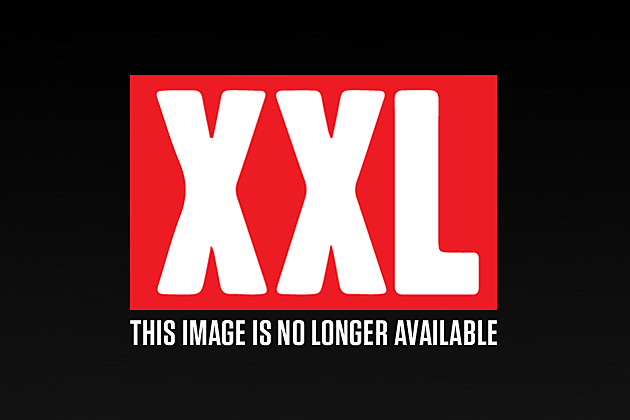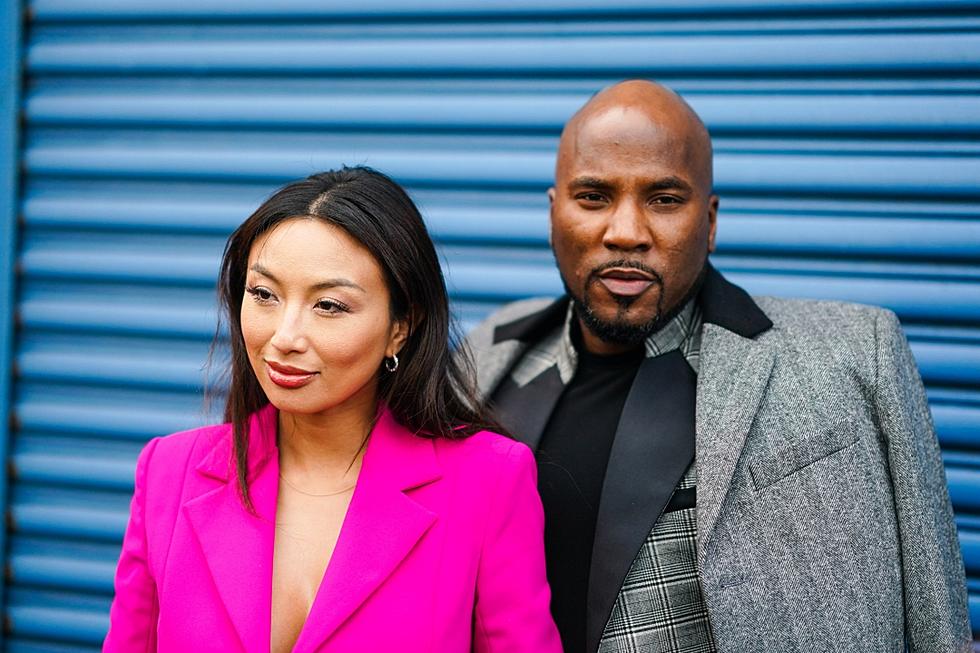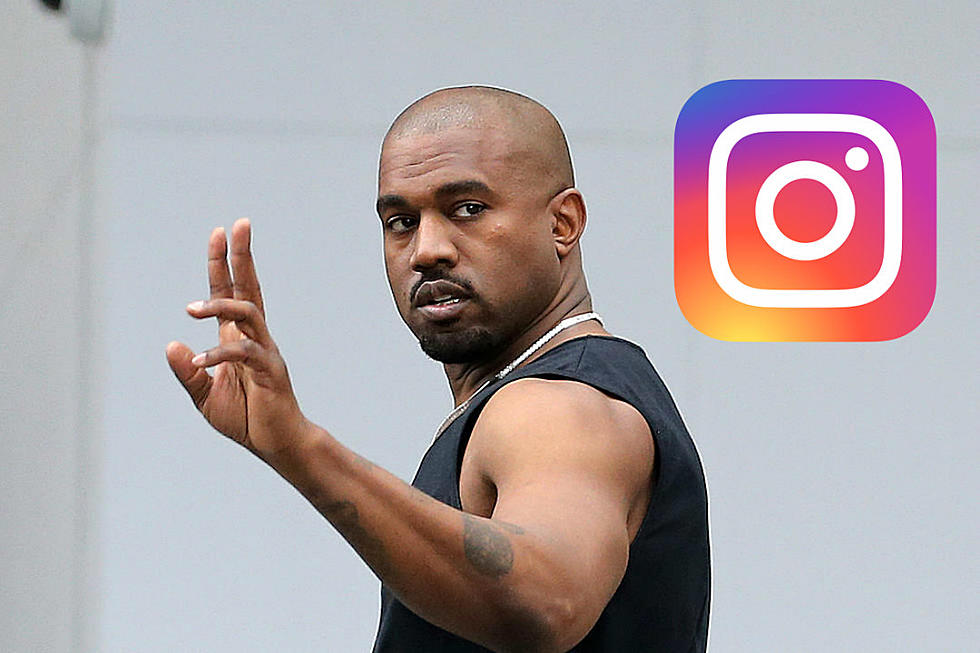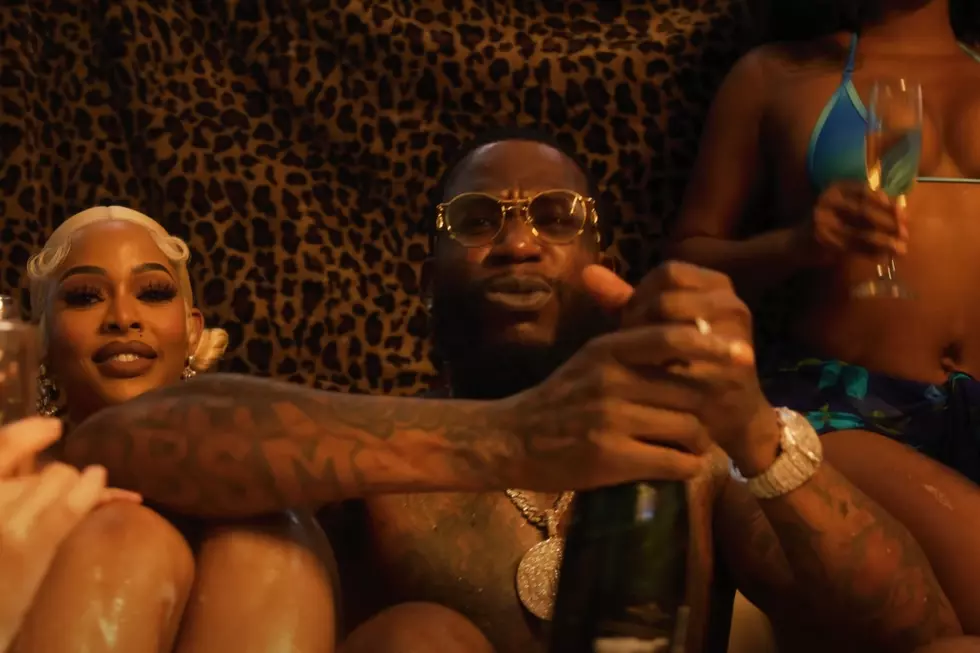Russell Simmons
The Turnaround

Russell Simmons has finally stopped talking. Sitting on the floor in a steamy, crowded room in downtown Manhattan, the notoriously motormouthed mogul known for monopolizing conversations with unfocused tangents, interrupting talk show hosts and constantly juggling calls on his ever-present cell phone is, at last, quiet. Save for some deep breathing and an occasional chuckle, Russell is completely focused on the task at hand—contorting his body like a pretzel in his beloved yoga class. Yoga is the one constant in his life right now, and his entire day is planned around it. Wherever he is—be it Dubai for a store opening or L.A. for a book signing—Russell goes to yoga.
On this particularly humid day in New York City, the co-founder of Def Jam and founder of Phat Farm has just completed a typically whirlwind day of meetings, interviews, photo shoots and an appointment with his podiatrist. “I can’t miss this doctor’s appointment,” he’d barked at his assistant earlier. “I can’t go to yoga if my foot hurts.”
Even as the doctor plunged a needle into his toe, he continued this interview, pecked manically on his Blackberry and took calls. And while most of us would hobble home after toenail surgery, Russell headed off, bandaged extremity and all, to class. “You’re coming, aren’t you?” he said as his Maybach neared the yoga studio, more of an announcement than a question. “Come on, it’ll be fun. I’ll buy you an outfit.” When I told him there’s no way I could keep up with him—he’s been a devotee of the practice for 15 years—he was encouraging. “Just smile and breathe,” he said, his tanned face beaming. “And if it hurts, fuck it, take a nap.”
Known by a number of monikers, from the deferential (“Godfather of Hip-Hop”) to the familial (“Uncle Russ”) to, probably, the most descriptive (“Rush”), Russell has been doling out fatherly advice to rappers for decades now. His ever-diversifying business plan (the label, the management company, the clothing line, the TV and movie deals, the philanthropy) has become a regularly copied blueprint for moguls in the making. His “aspirational” lifestyle (the house in the Hamptons, the photogenic girlfriend, the exotic vacations) has come to define the ultimate in success for the hip-hop generation. And now, his new book, Do You!—a yoga-inspired, feel-good advice tome on achieving goals by getting in touch with your inner voice—is a New York Times bestseller.
But, lately, there are those who have grown skeptical of Uncle Russ’ advice. People are wondering if the man who built the most successful label in hip-hop is losing touch with the form. In the wake of the Don Imus scandal and the misdirected blame pinned on hip-hop lyrics, Russell—who has always been a staunch defender of rappers (or “poets,” as he likes to call them) and their right to free speech—seemed to cave in to conservative pressure. He appeared on talk shows, zenlike and docile, agreeing with some of hip-hop’s harshest critics, like Oprah and Bill O’Reilly, that, yes, something needed to be done. He announced that his Hip-Hop Summit Action Network would hold a closed-door meeting with label execs, media bigwigs, radio folks and artists to discuss the situation. When they couldn’t come to a consensus, what followed was a statement released by Russell on behalf of the HSAN—recommending that mainstream media outlets bleep the words “nigger,” “hoe” and “bitch” from rap tracks.
It was a call that landed with a resounding thud. Free-speech advocates cried foul, as did top artists like Snoop Dogg, 50 Cent and T.I. “Hip-hop is a reflection of the environment that we grew up in,” said 50 when the topic came up during a BET press conference. “It’s the harsh realities that end up in the music. If I ask you to paint a picture of the American flag and not use the color red, you’re gonna have a difficult time.” T.I., also at the press conference, put it like this: “I don’t know if you know it or not, people, but there are bitches, niggas and hoes who live in America. And as long as that fact exists, I think rappers deserve the right to talk about it.”
 Before his doctor’s appointment, sitting behind his massive desk in his penthouse office in Midtown, Russell downplays the controversy. He defends his statement as common sense earned through experience. “What they don’t realize,” he says, “is my recommendations are just that: recommendations. People can do what the hell they want to do.” (A number of radio stations, including New York’s Hot 97, pledged to go along with the suggestion.) He gets up and retrieves a sugar-free Red Bull from the minifridge hidden behind the office’s wood-paneled bookcases. “You know, I was the first one to beep a rap record. I beeped [Run-DMC’s] ‘Here We Go.’ Remember that?” He shrugs. “I’m not saying I’m not out of touch. I’m saying they’re out of touch if they think they were playin’ ‘bitches’ and ‘hoes’ on the radio five years ago, even 10 years ago, ’cause it’s not true. They already beep these words 75, 80 percent of the time. My recommendation is for them to do it a hundred percent.”
Before his doctor’s appointment, sitting behind his massive desk in his penthouse office in Midtown, Russell downplays the controversy. He defends his statement as common sense earned through experience. “What they don’t realize,” he says, “is my recommendations are just that: recommendations. People can do what the hell they want to do.” (A number of radio stations, including New York’s Hot 97, pledged to go along with the suggestion.) He gets up and retrieves a sugar-free Red Bull from the minifridge hidden behind the office’s wood-paneled bookcases. “You know, I was the first one to beep a rap record. I beeped [Run-DMC’s] ‘Here We Go.’ Remember that?” He shrugs. “I’m not saying I’m not out of touch. I’m saying they’re out of touch if they think they were playin’ ‘bitches’ and ‘hoes’ on the radio five years ago, even 10 years ago, ’cause it’s not true. They already beep these words 75, 80 percent of the time. My recommendation is for them to do it a hundred percent.”
Since selling the last of his shares of Def Jam in 1999 and settling down to start a family, Russell has consumed himself with activism. He has hosted fundraisers for political candidates, like Hilary Clinton, and sponsors a number of charities and groups, including the Foundation for Ethnic Understanding, PETA, his own Rush Philanthropic Arts Foundation and his newest, the Diamond Empowerment Fund. There were even whispers that he was setting his sights on running for office, perhaps another reason to play the middle. But Russell says he isn’t interested in being a politician (“I took too many drugs when I was younger”) and that he made the recommendation about lyrics for rappers’ own protection.
“I know a lot more about what’s going on in Congress and the Senate than they do right now,” he says, leaning in conspiratorially. “All of ’em. And I think that they are a little bit at risk. I really believe that there are bills being introduced and there are people who are really after them. I know the [government’s] capabilities. They’ll try to attach the lyrics to hate crimes. ‘Bitches’ and ‘hoes’ could be part of a hate crime. Then their business will shrink.” He shakes his head and sighs like a father talking about a bunch of teenagers. “I don’t know,” he says, seemingly bored of the topic. “It’s their jobs, their careers. If you’re a gangster, then maybe you don’t need radio.”
 Read the rest of our Russell Simmons feature in XXL’s August 2007 issue (#94)
Read the rest of our Russell Simmons feature in XXL’s August 2007 issue (#94) More From XXL









